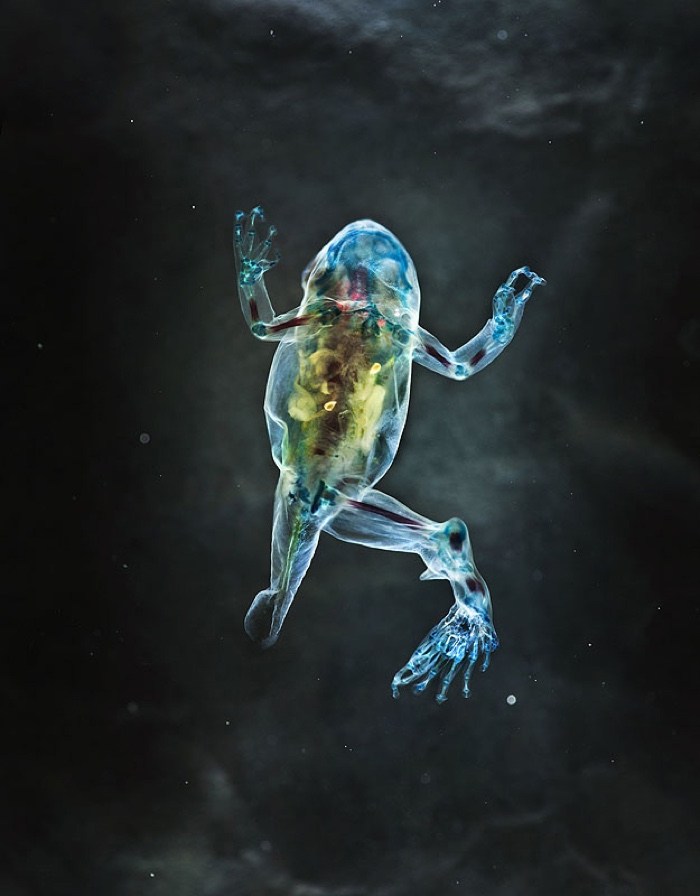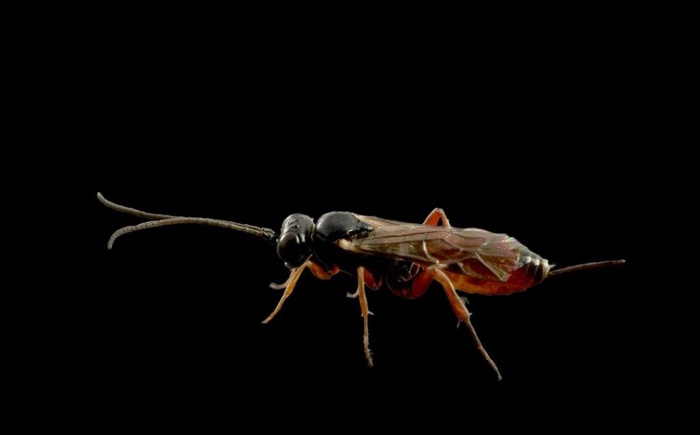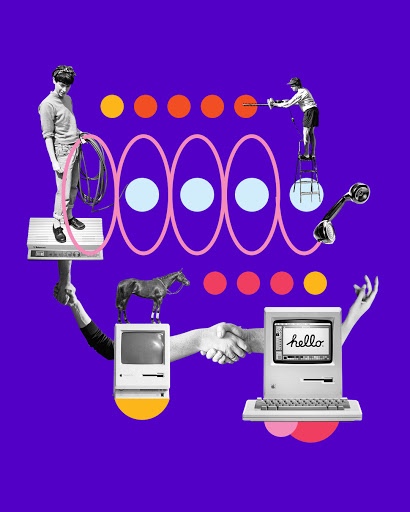Public announcement!
In July, I’ll be giving online classes on the theme of Art & Animals in the Age of CRISPR, Cloning and Cellular Agriculture with the School of Machines, Making & Make-Believe. A first edition of the class ran back in April. This one will be a bit different. First, because I learnt so much from the fantastic group of participants in April that I’d like to feed all their ideas, links and feedback into the new classes. Second, because I wanted to slightly adjust the content of the course. OUT are the plants (they’ll get their revenge in the future) and IN are the marine animals and the birds that I had neglected in Spring.

Brandon Ballengée, DFA136: Procrustes, cleared and stained Pacific tree frog collected in Aptos, California in scientific collaboration with Stanley K. Sessions (from the series Malamp Reliquaries), 2013

Agnès Villette and Emmanuelle Foussat, Alien of the Species
For the rest, the class will keep on reflecting what I care about: socially-engaged creative practices but with a stronger focus on non-human life. Microscopic and massive. Extinct, endangered, wild, familiar, lab-grown or “tech-augmented”. And because -as we are painfully learning right now- everything is connected, the classes will also be looking at the world that animals inhabit and where they encounter fungi, viruses, bacteria.
During the classes, we’ll be looking at taxidermy, de-extinction programmes, genome editing, bestiaries, farming, “invasive” species but we will also discuss the ethics of working with animals (including dead ones) and more generally of exhibiting life inside museums and galleries. The main objectives will be to investigate the shifting paradigms of the living world and to reflect on the possibility of co-evolving in a more sympathetic and mutually beneficial way with other living entities.
The full description of the classes is here.
The online classes will be taking place over the course of five weeks, two hours each week. The first session will be an informal “getting to know each other” event during which i will also be taking notes of any special curiosity and interests participants might have.
 If you feel extra studious, extra self-isolated or if you prefer to learn about something else, I’d also recommend having a look at Marisa Satsia‘s online classes on Medical Bodies; Marie Claire LeBlanc Flanagan, Lorenzo Pilia and Bahiyya Khan‘s Hands-on guide to making personal games; Ela Kagel‘s Tools for reimagining. Better worlds through cooperation.
If you feel extra studious, extra self-isolated or if you prefer to learn about something else, I’d also recommend having a look at Marisa Satsia‘s online classes on Medical Bodies; Marie Claire LeBlanc Flanagan, Lorenzo Pilia and Bahiyya Khan‘s Hands-on guide to making personal games; Ela Kagel‘s Tools for reimagining. Better worlds through cooperation.
Classes are live meaning that you can directly interact with the instructor as well as with the other participants from around the world. Classes will also be recorded for playback if you are unable to attend that day.
The school is offering a limited number of pay-what-you-can tickets to take part in this class. Preference given to women, POC, LGBTQ+ and persons from underrepresented communities who would otherwise be unable to attend.
This way to join!
Image on the homepage: Bryndís Snæbjörnsdóttir and Mark Wilson, Nanoq: Fat Out and Bluesome, 2001-2006.
